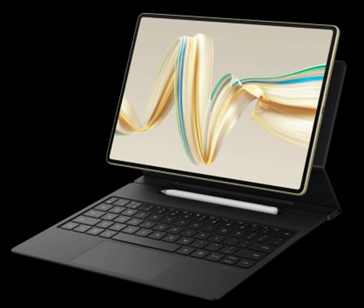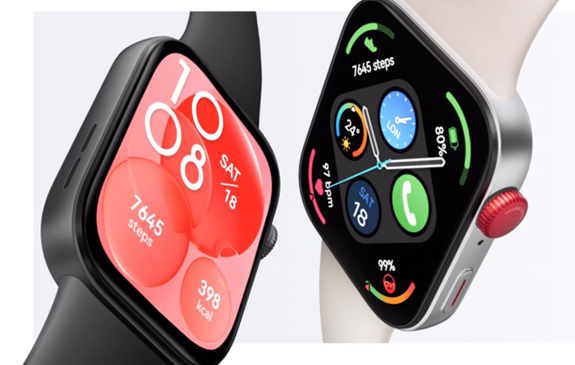Some gaming headsets have eye-catching designs that feature colored lighting and stark, angular elements that create a “high-tech” look. The Meters Level Up gaming headset is certainly striking; it doesn’t just have RGB lighting on the sides, but functioning VU meters, too. It’s a unique look, but that isn’t enough to justify a $129 price for a wired gaming headset, especially when its audio performance isn’t particularly strong.
The Meters Level Up has exactly what's in its name: meters. The back of each earcup, which is black with your choice of red, carbon fiber, or silver highlights, holds a VU meter with a moving needle that has a -20 to +6 dB range. The meter is lit with RGB LEDs that you can set to various colors or turn off entirely.
The meters are unique-looking additions, especially when their lights are activated. They indicate the signal strength, or volume, coming through the headset. The meters are purely for aesthetics rather than functionality, though, since you can’t actually see them when you’re wearing the headset. Even if they were visible, a VU meter for a USB-powered gaming headset isn't particularly useful compared with a VU meter in an amp or A/V receiver, where they're typically found.
Besides the meters, the Level Up looks and feels like a fairly standard gaming headset. It’s relatively light, mostly black plastic with faux leather-covered foam earpads and a similar band of padding on the headband's underside. The earpads are large, easily covering most ears, and the headset is light enough to remain comfortable without weighing down your head.
The flexible boom microphone plugs into the left earcup's bottom edge, with the headset cable permanently attached below it. The cable is fabric-wrapped and about five feet long, terminating in a USB-A plug. A remote sits nearly two feet down the cable from the headset, and features a volume wheel, a mic mute switch, a meter light color cycling button, and a 3.5mm headset jack for use with PlayStation and Xbox game controllers (a 3.5mm cable is included, along with a cloth drawstring pouch for carrying the headset).
As a USB headset, the Level Up is primarily designed to work with a PC, and the Level Up Windows software enables 7.1-channel, simulated surround sound. You can use the Level Up with any device with a headset jack, though it still needs to be plugged into a USB port for power.
The Meters Level Up software includes a variety of adjustments you can make to the headset, though the user interface feels dated and slightly clunky next to Razer and Logitech’s headset apps. It provides a customizable equalizer, multiple environment effects, virtual speaker placement for the simulated 7.1-channel surround sound, and even microphone voice effects. There are many settings to play tinker with, but they're buried under stock menus that feel out of place next to the Level Up’s style.

The Level Up’s microphone sounds reasonably clear. Test recordings were mostly clean and easy to understand, though had a bit of sibilance. It’s a perfectly functional mic for voice chat, but it doesn’t offer quite the level of recording quality as the headsets mics on the Razer BlackShark V2 or Logitech G Pro X, our Editors' Choice picks. As always, for serious recording or streaming, we recommend getting a separate USB microphone for even better voice capture.
The Level Up puts out some powerful bass, perhaps a bit too powerful for the headset to handle. At maximum volume, our bass test track, The Knife’s “Silent Shout,” produced a hint of crackle in the headset, indicating distortion. Turning the volume down to about 90% alleviated that crackle, but it’s slightly surprising. The sound is loud and thumpy, though the kick drum hits and bass synth notes don’t reach low enough into the sub-bass range to really palpably rattle your head.
The low-mid resonance of the acoustic guitar notes in the opening of Yes’ “Roundabout” stands out on the Level Up, though the track gets enough high-mid presence to give the strings some texture. When the song properly starts, it’s a very low-mids-heavy mix, with the bass riffs standing out distinctly in front of the guitar strums, drums, and vocals. It’s not a particularly balanced sound, but you can tweak it with headset's equalizer.
The bassline and backbeat in The Crystal Method’s “Busy Child” also stands out in the front of that track, with plenty of powerful thump that gets more attention than the synth riffs and samples. Once again, this is a very bass-heavy balance.
The Level Up’s bass heaviness hurts it a bit with shooters. While the headset has 7.1-channel surround sound, I found that it didn’t give a very good sense of directionality in Fortnite. Gunshots and footsteps were deep and full, but without sculpted higher frequencies to compensate they didn’t clearly indicate their directions through the headset’s stereo panning.
The Meters Level Up headset is certainly striking, and it offers strong bass. However, its balance and performance can’t compare with our similarly priced, wired, Editors' Choice picks, the Razer Blackshark V2 and Logitech G Pro X; the bass is simply too overpowering when you crank the volume, and throws off the headset’s simulated surround sound imaging. If you’re really in love with the look, this isn’t a terrible headset, but otherwise you should consider those two wired alternatives, or take a look at the excellent Razer Nari Essential or HyperX Cloud II Wireless for similarly priced wireless alternatives. The Meters Level Up would be appealing at half its price, but for a wired headset that costs more than $100, its audio quality just doesn’t hold up.








